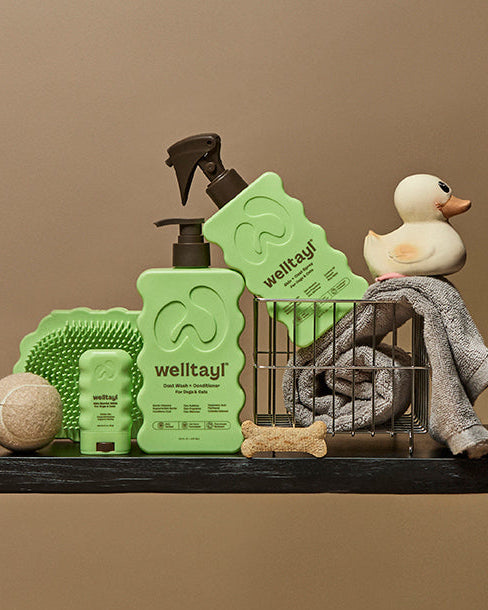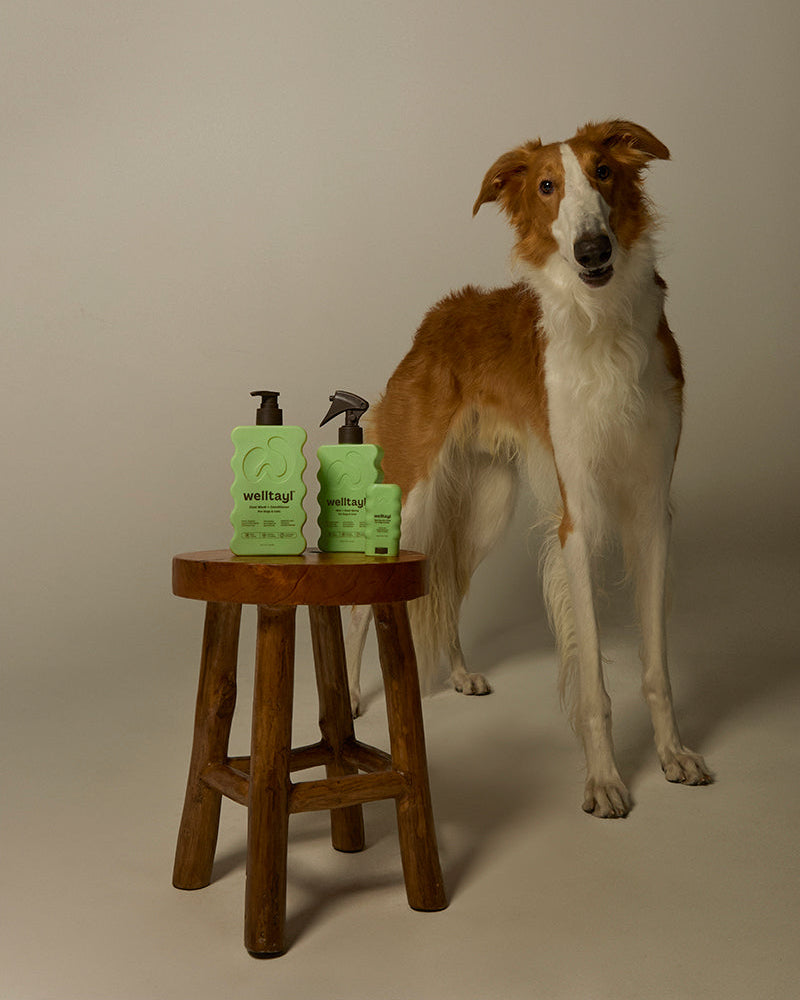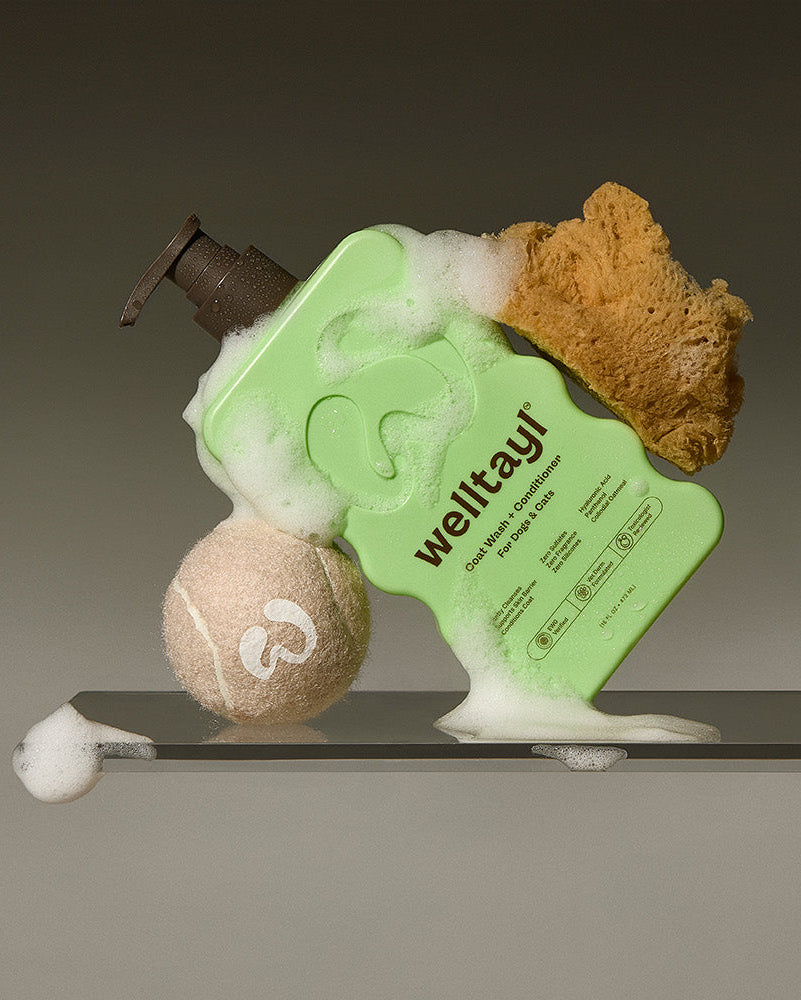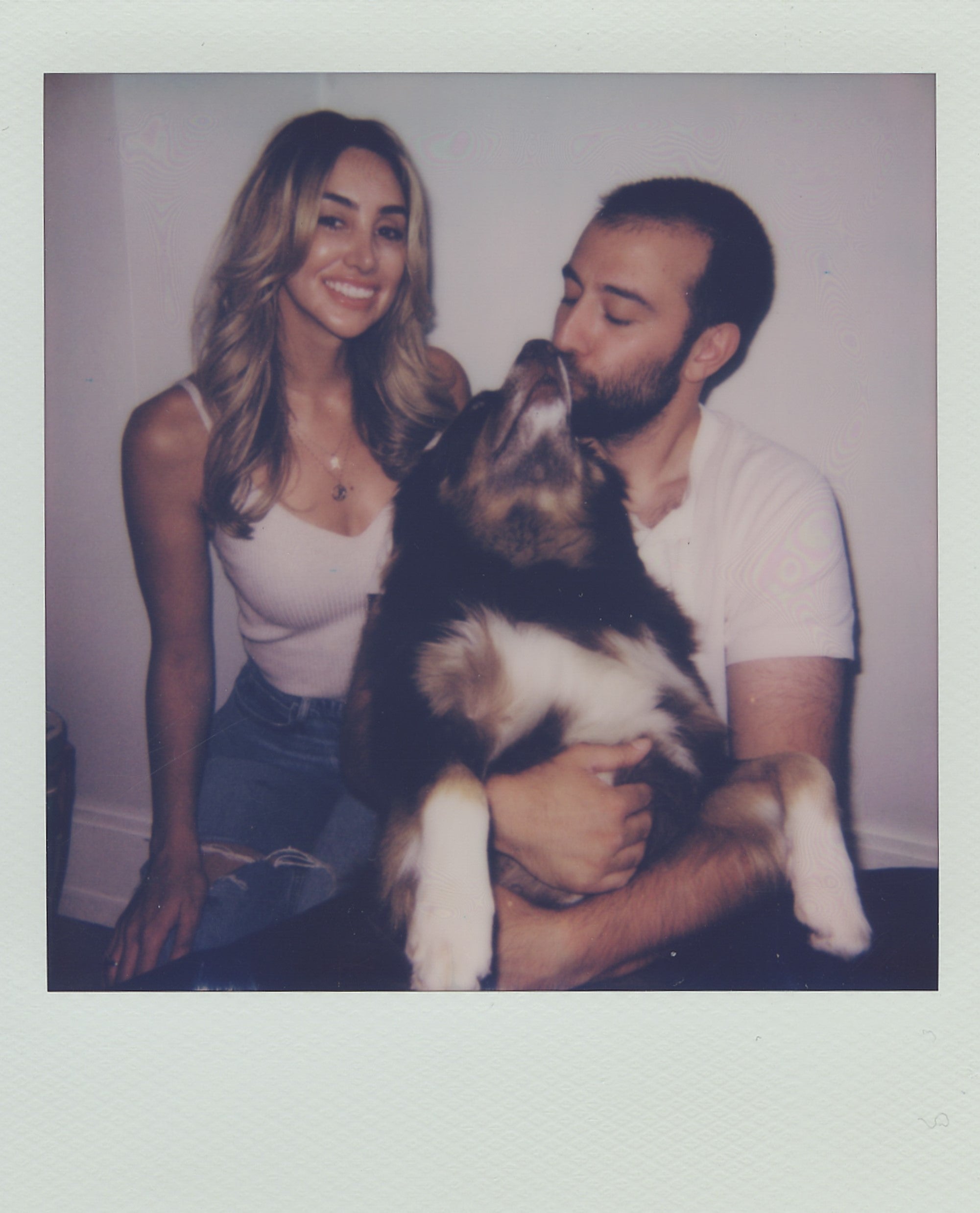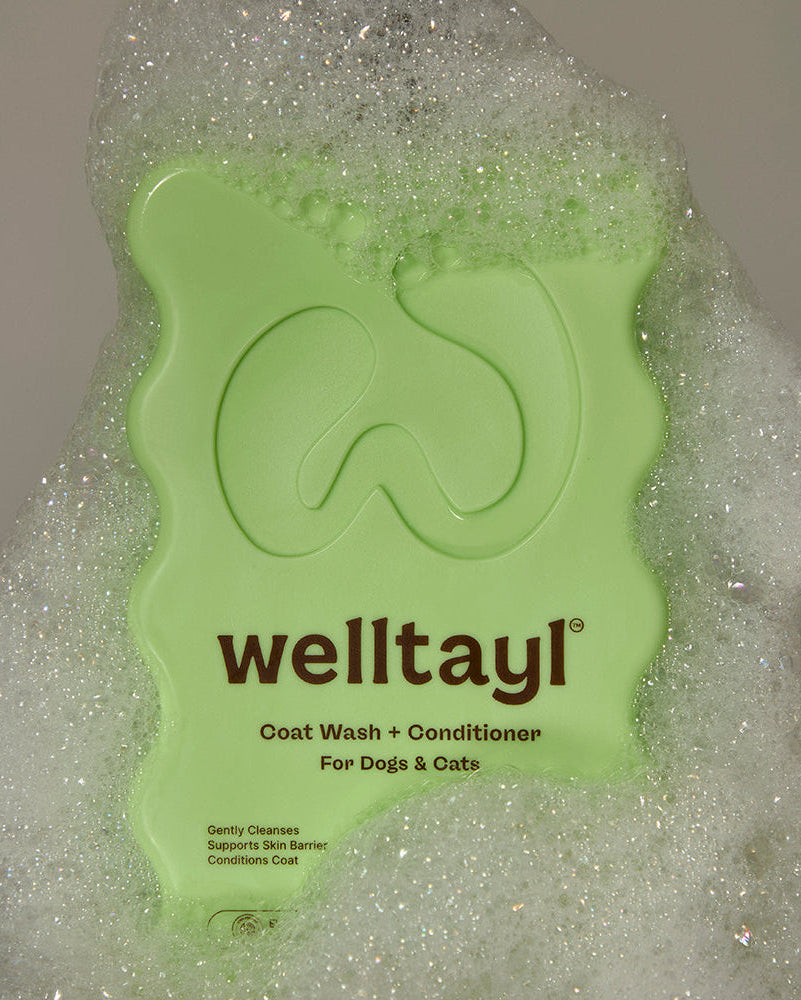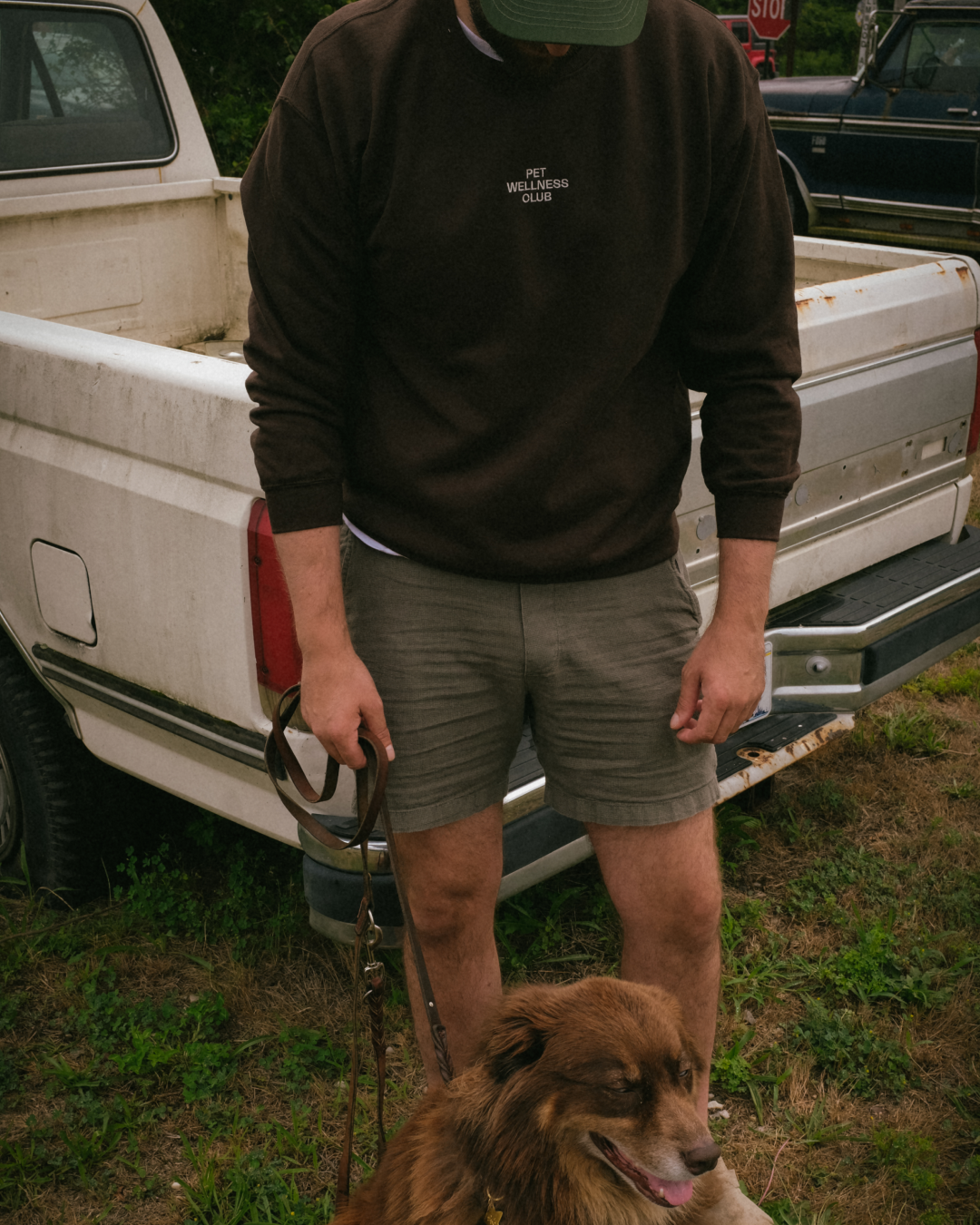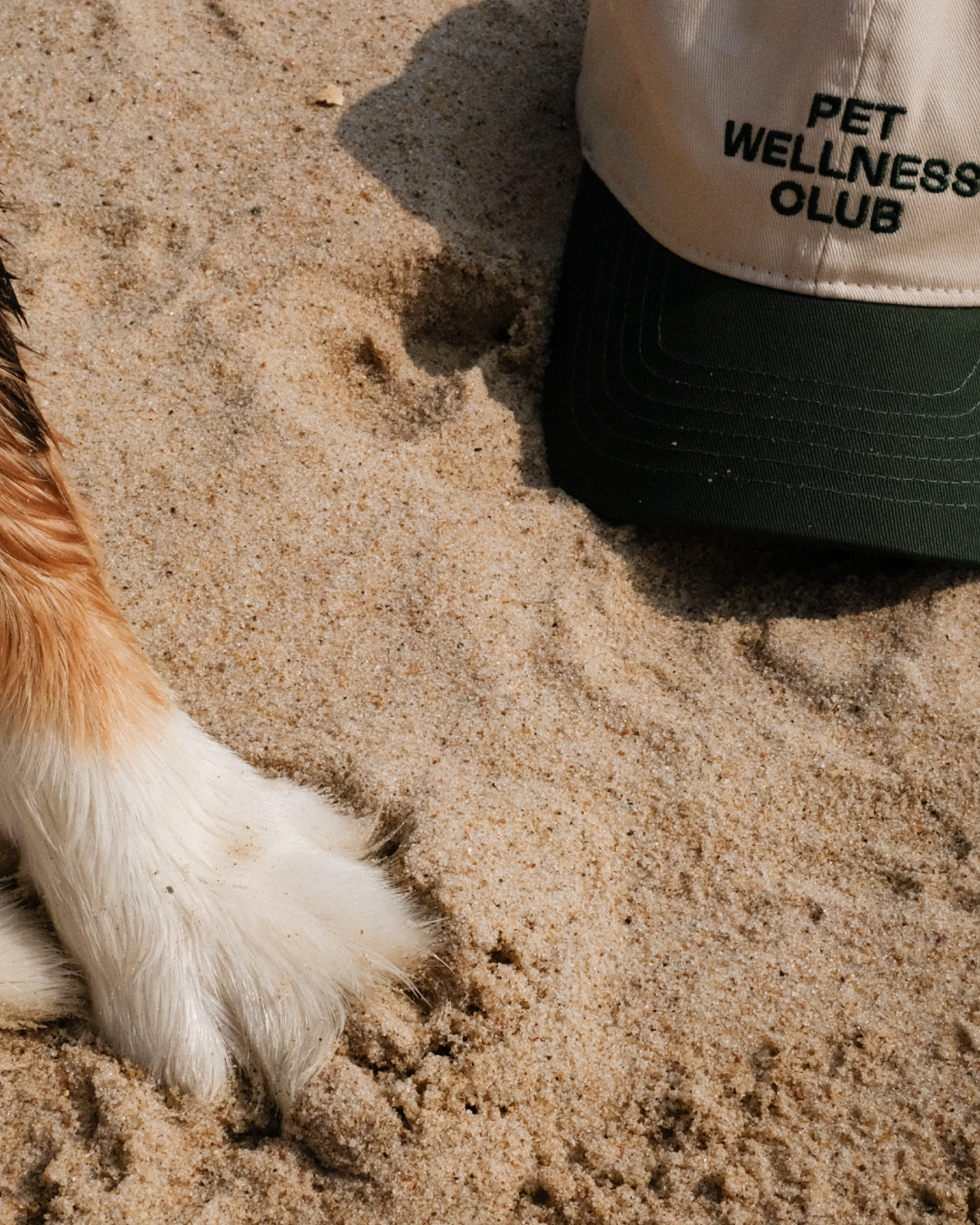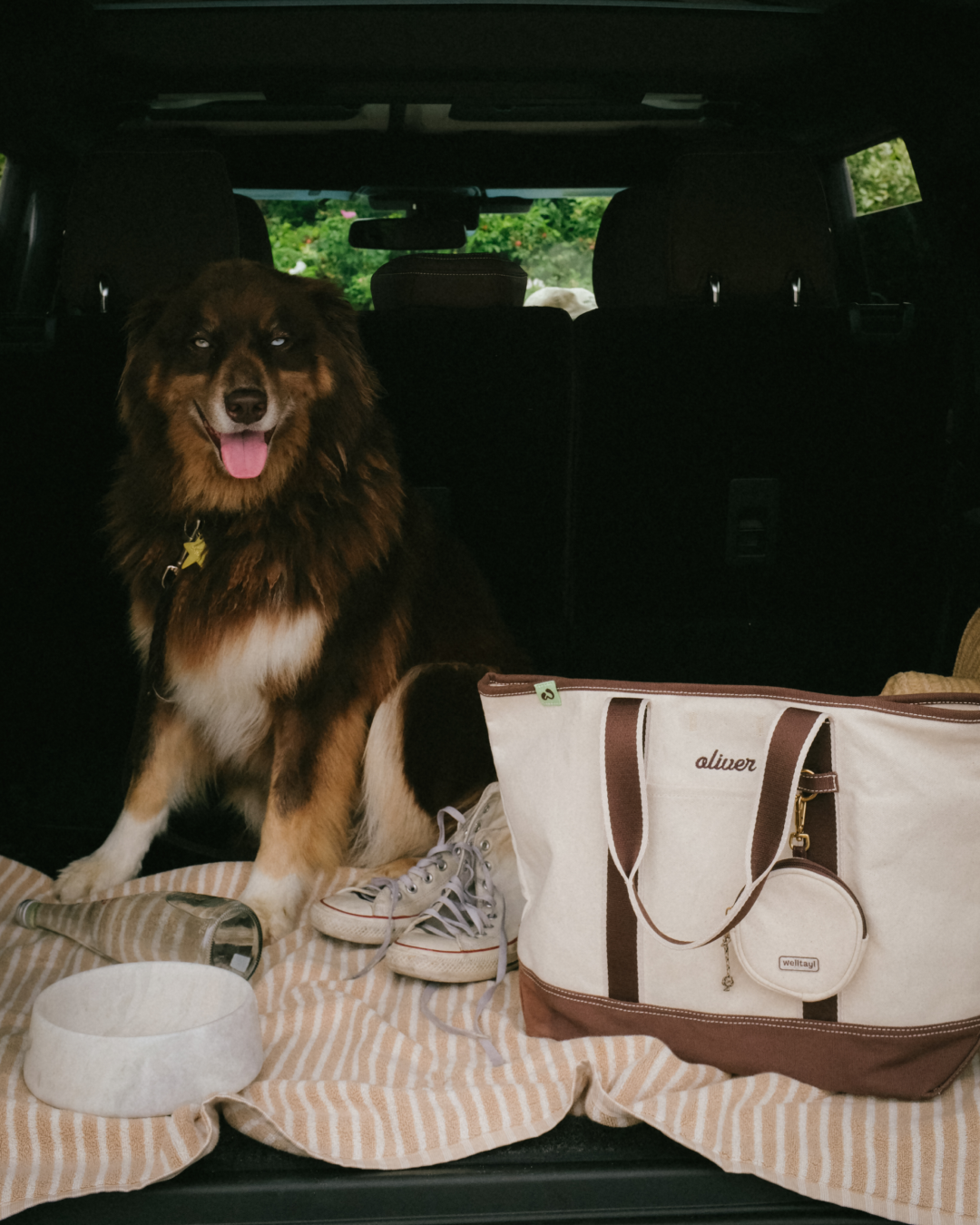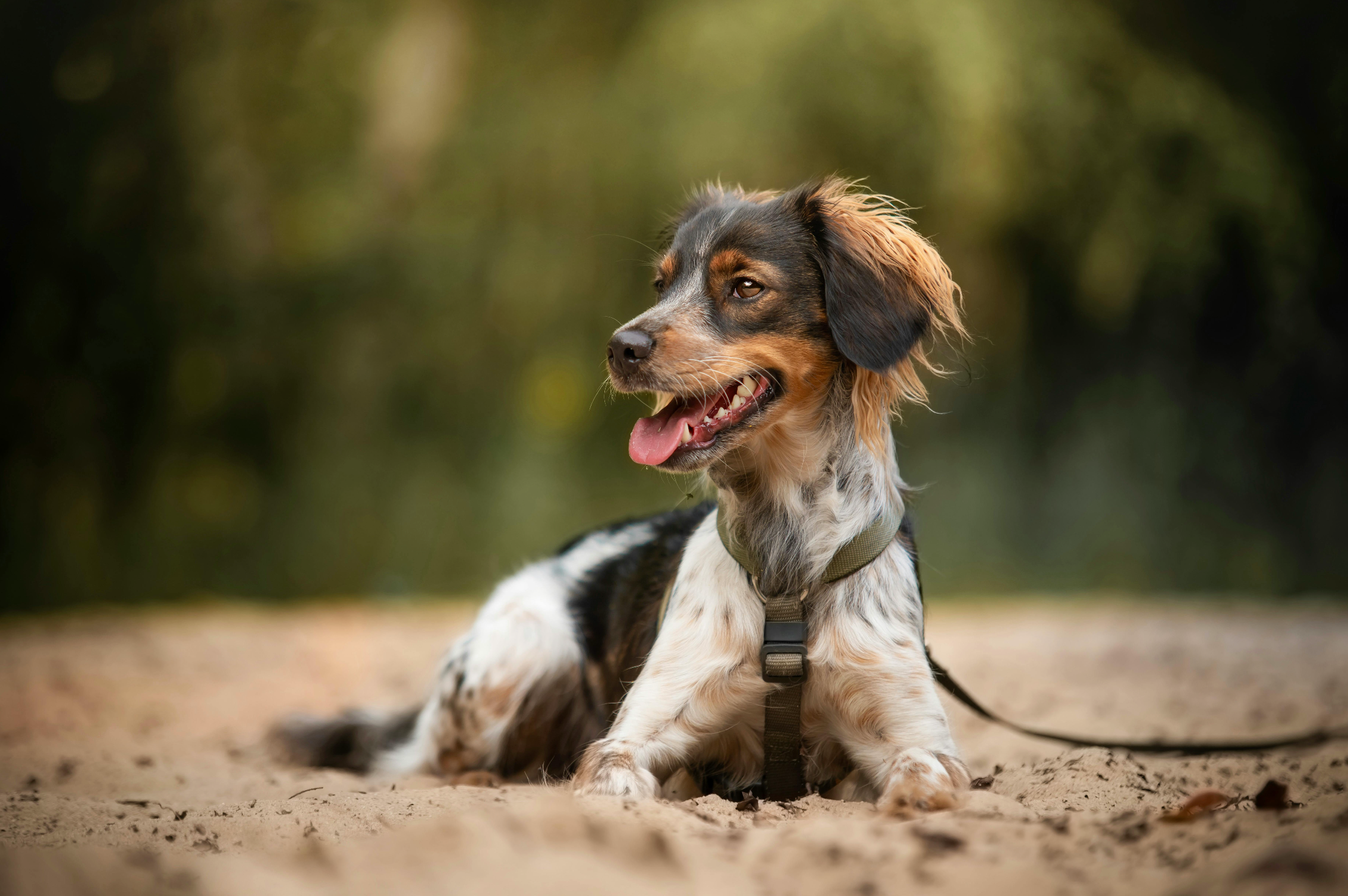Understanding why dogs pant can help you keep them happy and healthy. Whether they’re cooling off or signaling distress, a little knowledge goes a long way in caring for your pup.
When your dog pants warm water evaporates off the surface of their tongue, allowing them to release heat and cool down. It’s perfectly normal to see your furry friend panting after exercise or in warm weather, but it’s important to know when it might signal something more serious.
Table of Contents:
- Key Takeaways
- Why Do Dogs Pant? 4 Main Reasons
- When Should You Be Concerned About Panting?
- Conclusion
- Frequently Asked Questions
Key Takeaways
-
💦 Dogs pant primarily to regulate their body temperature, as they cannot sweat like humans.
-
🥵 Panting also occurs due to emotional triggers such as excitement, anxiety, or stress.
-
❗️ Excessive or unusual panting can indicate health issues like pain, illness, or side effects from medications.
-
🐽 Certain breeds, like Bulldogs and Pugs, are more prone to panting due to respiratory challenges associated with their short snouts.
-
🩺 Severe panting can signal heatstroke or respiratory problems which necessitate prompt veterinary attention.
-
Monitoring your dog’s panting patterns helps ensure their safety and well-being, especially in warm weather or stressful situations.

Why Do Dogs Pant? 4 Main Reasons
Dogs pant to cool themselves down, when they are excited or stressed, but it can also signal potential health issues. Understanding this helps you care for your furry friend better.
1. Cooling Down: Regulating Body Temperature
Panting helps dogs stay cool when they're hot since they can't sweat all over their body like humans. Panting works by rapid, shallow breathing that allows moisture on their tongue and other oral surfaces to evaporate and release heat. After exercise or on a hot sunny day, panting is normal for temperature regulation. Make sure your dog has access to cool, fresh water to avoid dehydration, which can lead to overheating.
2. Emotional Triggers: Stress or Excitement
Panting also occurs when dogs are excited, stressed or anxious. For instance, during playtime or when meeting a new friend, panting is common. However, if your dog pants in situations like visiting the vet or after hearing loud noises like a thunderstorm, it might indicate stress or anxiety. Look for other stress-related signs like whining or pacing.
3. Medical Reasons: Pain, Illness, or Medication
Unusual or heavy panting without an obvious cause could point to an underlying medical issue. Pain, fever, or conditions like heart or lung problems can trigger this behavior. Medications might also cause excessive panting as a side effect. For example, if your dog pants persistently and appears lethargic, consult your vet immediately.
4. Breed-Specific Factors: Brachycephalic Breeds
Certain breeds like Bulldogs and Pugs, known as brachycephalic dogs, pant more due to their short snouts. The structure of their respiratory system makes it harder for them to cool down and breathe efficiently. Extra care is needed in hot weather, avoiding strenuous exercise and ensuring access to shade and water.
Looking for more tips about your pets? Sign up for the Welltayl newsletter! Get quick, helpful advice sent straight to your inbox, perfect for keeping your furry buddy happy and healthy.

When Should You Be Concerned About Panting?
Panting is usually normal after exercise or in warm weather, but certain patterns can indicate health problems. Knowing when to seek help is essential for your dog’s wellbeing
Excessive or Unusual Panting
When panting becomes constant or appears to have no clear reason, it might signal an underlying issue. Conditions like heart problems, respiratory diseases, or Cushing’s disease can cause persistent panting. Pay attention to potential additional symptoms like lethargy, coughing, or excessive thirst. Sudden heavy panting could also mean poisoning or heatstroke, which require immediate veterinary care.
Panting at Night or While Resting
If your dog begins panting heavily when they’re calm or resting, it may be linked to anxiety, illness, or discomfort. Medications, such as steroids, can sometimes create this side effect as well. Watch for other signs, like restlessness or pacing, to help identify the cause and consult your vet.
Signs of Heatstroke or Respiratory Issues
Severe panting in high temperatures might indicate heatstroke, especially if your dog is drooling heavily, has red gums, or becomes weak. Dogs with respiratory issues may pant excessively because they’re struggling to breathe, and these conditions may involve wheezing, coughing or gasping sounds. Breeds with flat faces, like Bulldogs, are at higher risk for overheating so monitor them closely in warm environments.
When to Consult a Veterinarian
Contact a vet if excessive panting happens without a clear reason or doesn't improve with rest and cooling. Watch for symptoms like:
-
Difficulty breathing with little exertion.
-
Blue, purple, or pale tongue or gums.
-
Heavy panting at night or while resting.
A vet can diagnose underlying medical conditions to ensure your dog receives proper care.
Conclusion
Understanding why your dog pants and recognizing when it’s normal versus concerning is key to catching a medical issue quickly. By staying attentive to their behavior, providing a safe environment, and addressing any unusual signs promptly, you can ensure your furry friend stays healthy. Always trust your instincts and don’t hesitate to consult a veterinarian if something feels off. Your care and awareness make all the difference in your dog’s overall well-being.
Stay Updated with More Pet Knowledge!
For more pet info and knowledge, consider signing up for the Welltayl newsletter. It's packed with helpful advice tailored for pet owners like you, ensuring your furry friends stay healthy and happy. Sign up today and keep up to date with the latest in pet care.
Frequently Asked Questions
Why do dogs pant?
Dogs pant to regulate their body temperature, especially after exercise or in hot weather. Since dogs don’t sweat all over like humans, panting helps evaporate moisture from their tongue and mouth, releasing heat in the process. Panting can also be due to stress and anxiety or an underlying health issue.
When should I worry about my dog panting?
Dog panting is normal after exercise or in heat, but you should worry if it’s excessive, rapid, or paired with symptoms like lethargy, coughing, or distress. Consult a vet if it persists to rule out pain, respiratory issues, or heart problems.
Do dogs pant when they are happy?
Yes, dogs can pant when happy or excited, like during playtime or greetings. It’s a normal response to heightened emotions. As long as it’s brief and they seem content, it’s nothing to worry about!
Resources:
Read more
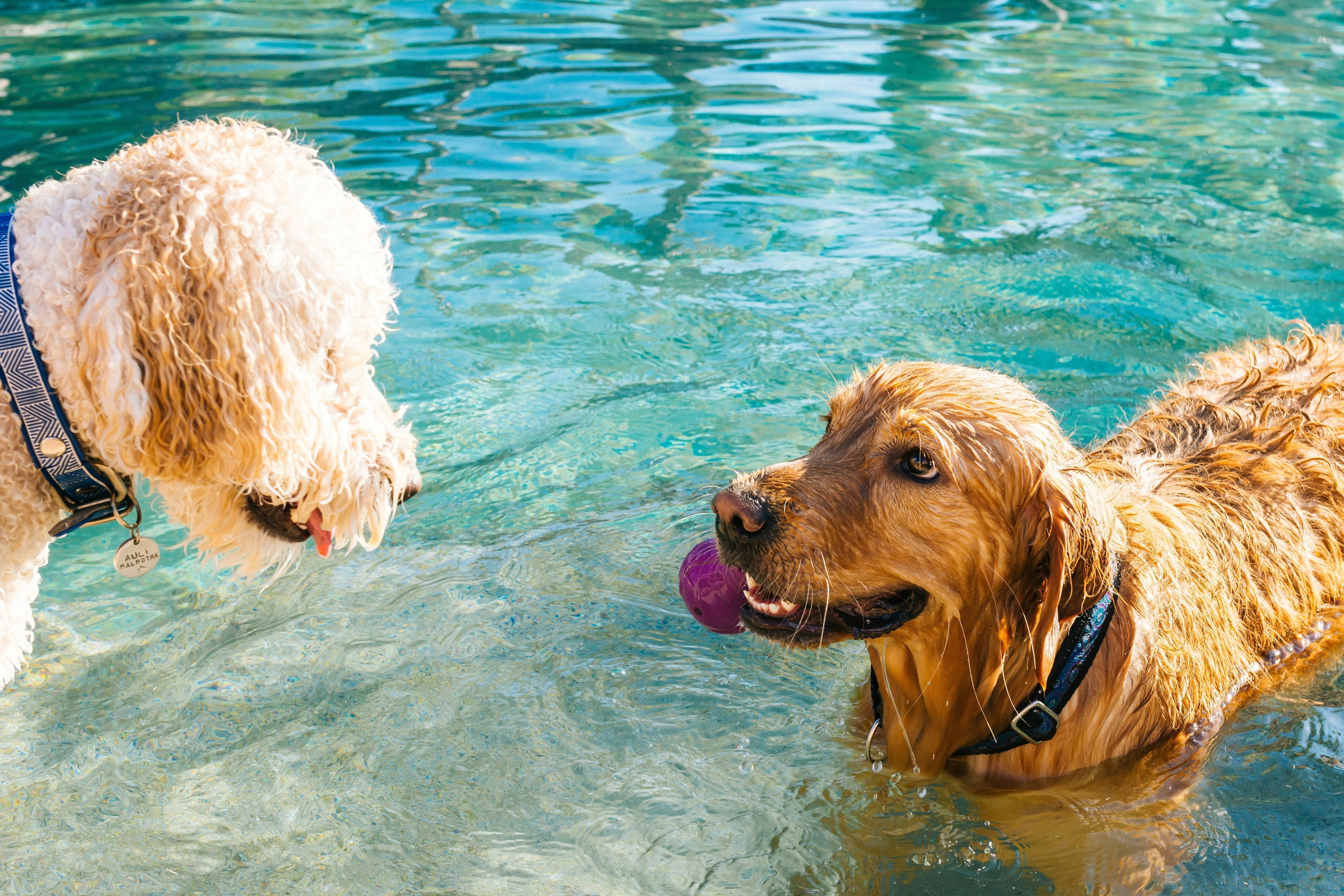
Learn how to let your dog swim safely in chlorine pools. Get tips on reducing skin irritation, preventing pool water drinking, and maintaining a clean pool.
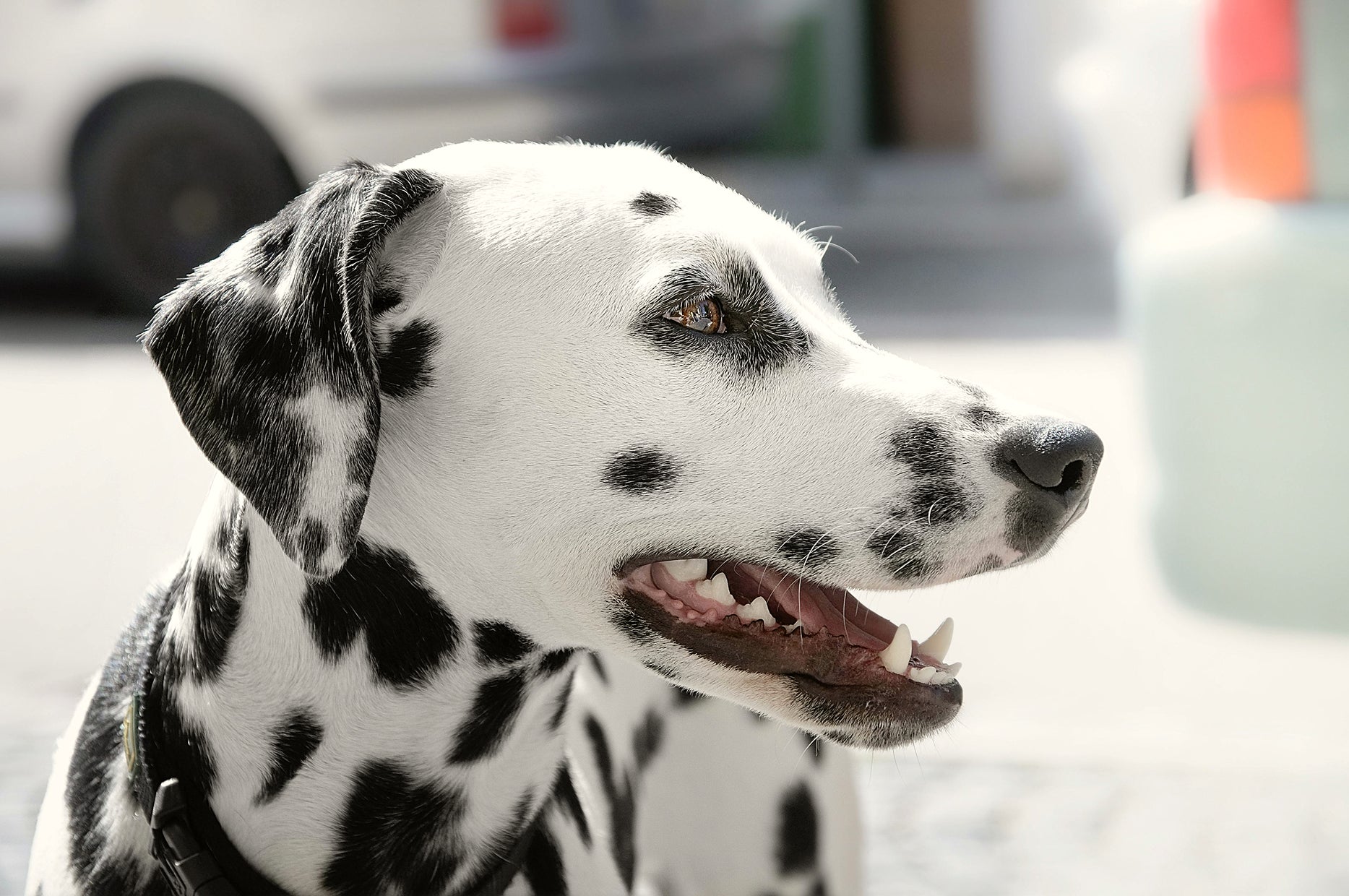
Understand your dog’s body language. Decode signals, build trust, and strengthen your bond. Start connecting better with your dog today!


